Local level organizations engage the most crucial, unreachable areas of a community, empowering it from within. They enable community members to enhance their own and others’ capacity to create waves of social change. One way Community World Service Asia supports local organizations in their grassroots efforts is to equip them with effective strategies of social mobilization. These strategies assist communities in contributing to and participating more productively in social, economic, politico-legal and decision-making fora to improve the lives of the most vulnerable.
Bringing Social Mobilization to Communities Through Training
Community World Service Asia’s Essentials of Social Mobilization training workshop aims at enhancing social mobilizers’ skills to overcome existing barriers in communication, performance and engagement with their target communities.
CWSA conducted this training at the Department of Social Work at University of the Punjab from August 28 to 31, 2019. The training engaged 28 social mobilizers and staff members from 11 local organizations in various theoretical and practical learning experiences to enhance their social mobilization capabilities. Participating organizations included Médecins du Monde, Helping Hand for Relief, The Brooke Hospital for Animals Pakistan, Easy Approach Community Organization (EACO) and Forum for Language Initiatives.
The training helped the participants to develop an understanding of:
- the essential traits of a social mobilizer;
- how to use effective tools of communication;
- the steps for enhancing community engagement;
- how to identify the root cause of an issue in a community;
- how to disarm myths and stereotypes and employ cultural and contextual strategies to overcome challenges; and
- project management and problem handling.
The training employed a mix of activities, energizers, group discussions, indoor and outdoor role plays, innovative use of audio/visual techniques and daily reinforcement to support learning. It also provided an opportunity for the participants to share their experiences and success stories with their peers, which helped them to develop a sense of trust and confidence, strengthening the group work dynamics.
By the end of the four days, with the support of the CWSA team and resource persons, Moazzam Ali and Nergis Khan, the participants prepared customized action plans to apply their learning within their organizations and in the communities they serve. Equipped with practical knowledge and actionable plans, the participants expressed their eagerness for additional training on other topics to continue to increase their effectiveness in their work.
Participants’ Voices:
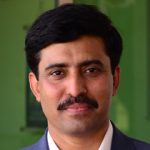 “The training techniques were interesting and engaging. The trainers, Moazzam Ali and Nergis Khan, not only held theoretical session, they also engaged participants in practical learning exercises such as role plays and group activities. We can replicate these activities in the target communities to build capacities of community members.” Mahmood Ahmad Medecins du Monde
“The training techniques were interesting and engaging. The trainers, Moazzam Ali and Nergis Khan, not only held theoretical session, they also engaged participants in practical learning exercises such as role plays and group activities. We can replicate these activities in the target communities to build capacities of community members.” Mahmood Ahmad Medecins du Monde
 “The activities conducted in the training workshop were interactive and provided long-term learning. The session on Policy of Social Mobilization made me realize the importance of having such a policy on an organizational level. These policies can be designed in accordance with the culture and context of the organization, which will boost the efficacy of the project activities for the welfare of communities.”
“The activities conducted in the training workshop were interactive and provided long-term learning. The session on Policy of Social Mobilization made me realize the importance of having such a policy on an organizational level. These policies can be designed in accordance with the culture and context of the organization, which will boost the efficacy of the project activities for the welfare of communities.”
Rehana Yasmeen Easy Approach Community Organization (EACO)
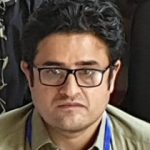 “The training content helped me in overcoming the communication and mobilization gaps which exist in my field work. Moreover, the training environment was very welcoming, and it allowed me to share experiences openly and learn from others’ as well.”
“The training content helped me in overcoming the communication and mobilization gaps which exist in my field work. Moreover, the training environment was very welcoming, and it allowed me to share experiences openly and learn from others’ as well.”
Sajjad Ahmad Forum for Language Initiatives





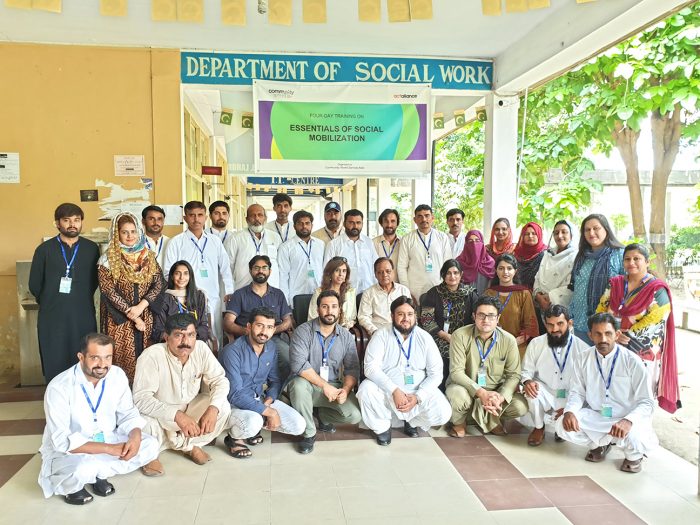
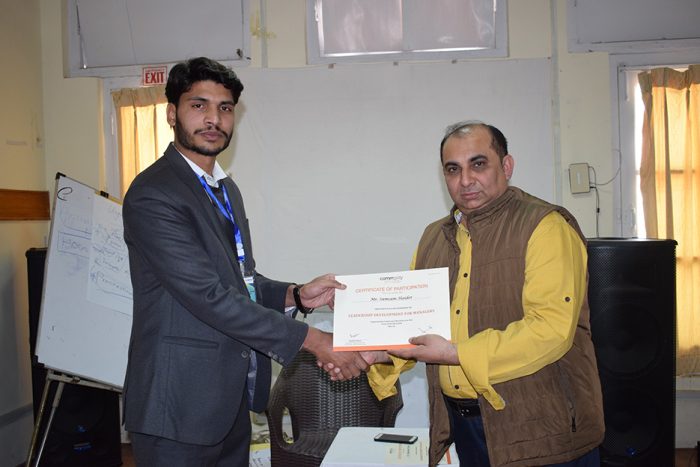
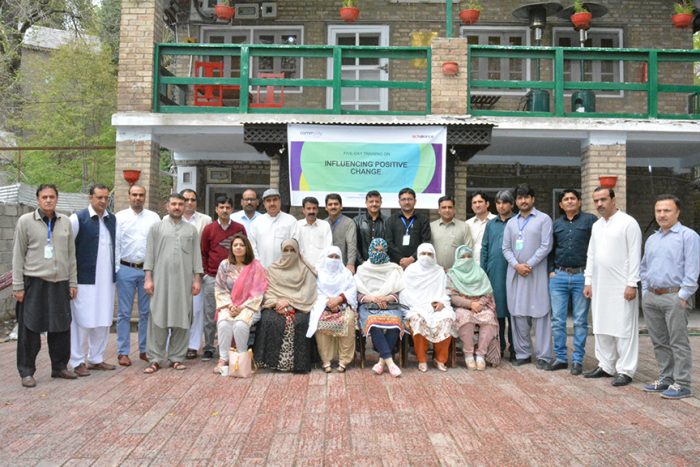
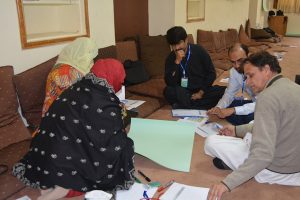
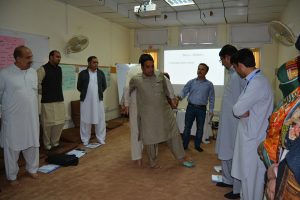
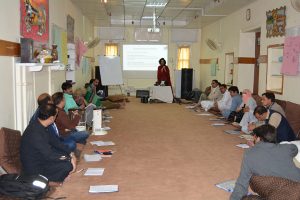
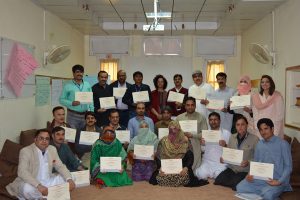
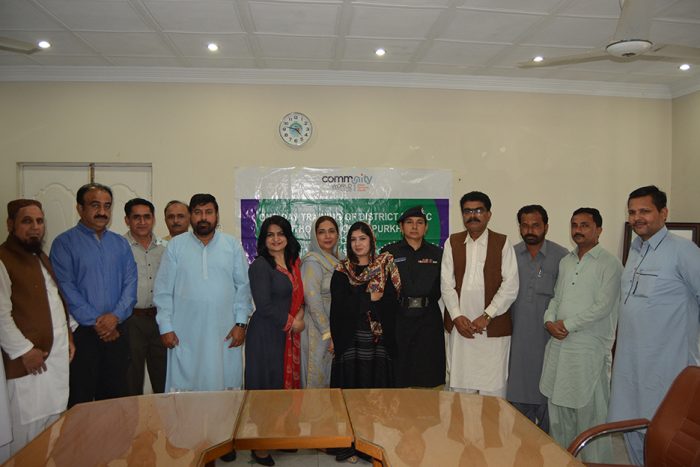
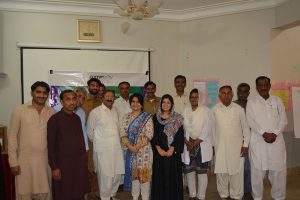
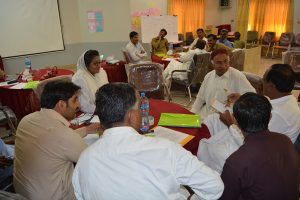
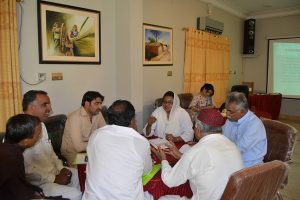
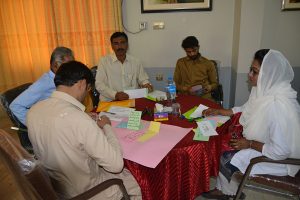
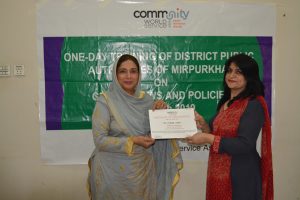
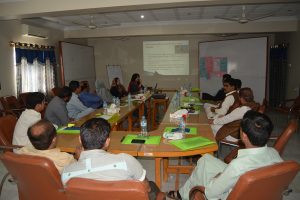
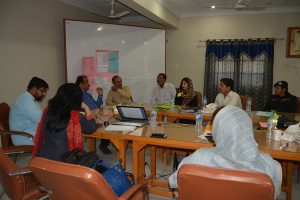
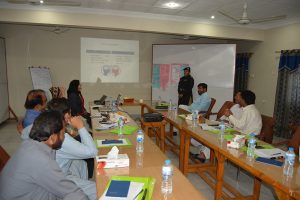
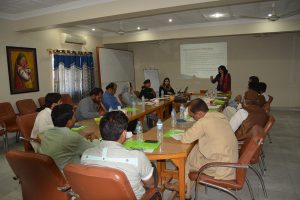
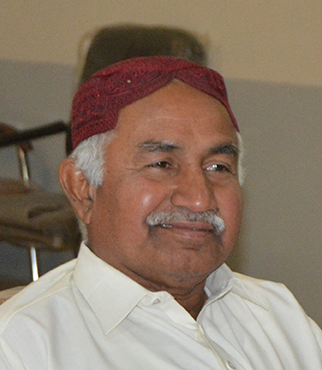 “The training was very relevant to our field of work. The training introduced the patriarchy system and how it plays an important role in assigning different roles, keeping in view the gender perspective,” shared Saroop Chand, Assistant Director Social Welfare, Umerkot.
“The training was very relevant to our field of work. The training introduced the patriarchy system and how it plays an important role in assigning different roles, keeping in view the gender perspective,” shared Saroop Chand, Assistant Director Social Welfare, Umerkot.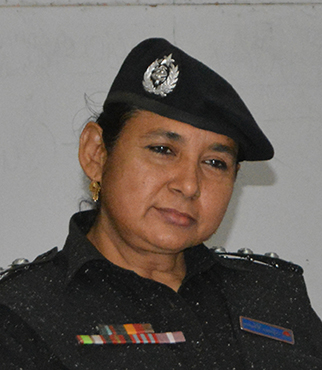 “I mostly decline training proposals I receive. However, the agenda of this training was quite appealing and relevant to my work. Sofia stressed on implementing the existing laws and policies in the country. Through proper implementation, we can omit the gender difference in every field of life and encourage empowerment of both men and women equally for the betterment of our society,” positively expressed Afroza Chohan, Incharge Women Complaint Cell, Mirpurkhas and Umerkot.
“I mostly decline training proposals I receive. However, the agenda of this training was quite appealing and relevant to my work. Sofia stressed on implementing the existing laws and policies in the country. Through proper implementation, we can omit the gender difference in every field of life and encourage empowerment of both men and women equally for the betterment of our society,” positively expressed Afroza Chohan, Incharge Women Complaint Cell, Mirpurkhas and Umerkot.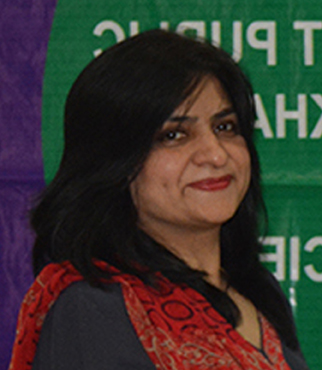 An exercise on clarifying the difference between gender and sex was one of the key topics of one of the sessions. Key institutions, such as family, academia, peer groups, religious institutes and media that play a vital role in establishing societal gender roles were identified as well. “On basis of these roles, some sections of society are given powerful status within societal structures while others are considered subordinate and subjugated. Hence, it is important to emphasize on the difference between gender and sex,” shared Sofia Noreen.
An exercise on clarifying the difference between gender and sex was one of the key topics of one of the sessions. Key institutions, such as family, academia, peer groups, religious institutes and media that play a vital role in establishing societal gender roles were identified as well. “On basis of these roles, some sections of society are given powerful status within societal structures while others are considered subordinate and subjugated. Hence, it is important to emphasize on the difference between gender and sex,” shared Sofia Noreen.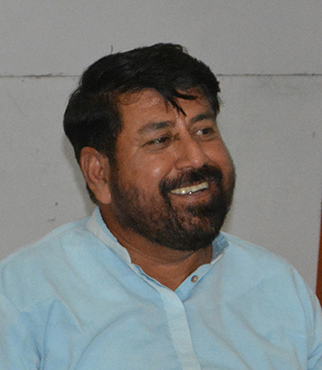 “The content of the training was unique and informative. I was unaware of many of the laws and policies related to Gender but this experience built a strong perspective towards women empowerment. The training stressed on how the process of socialization shapes our thoughts and actions and at which level one needs to work on changing the unjust mindsets,” said Junaid Mirza, Assistant Director Social Welfare, Mirpurkhas.
“The content of the training was unique and informative. I was unaware of many of the laws and policies related to Gender but this experience built a strong perspective towards women empowerment. The training stressed on how the process of socialization shapes our thoughts and actions and at which level one needs to work on changing the unjust mindsets,” said Junaid Mirza, Assistant Director Social Welfare, Mirpurkhas.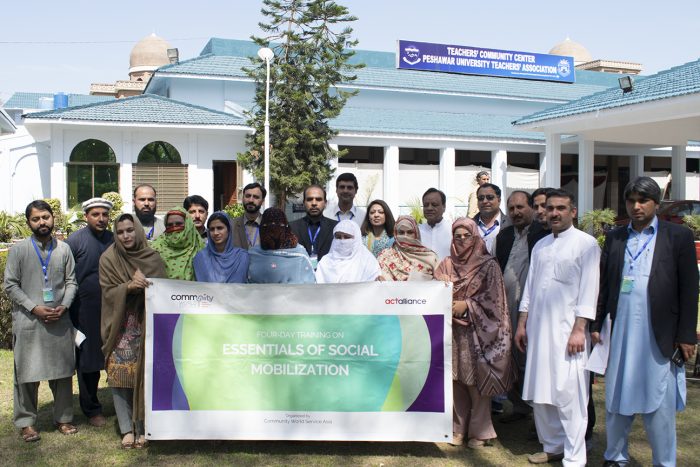
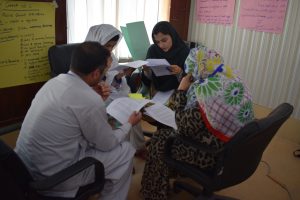
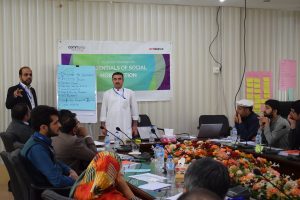
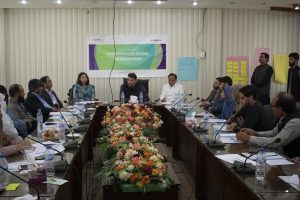
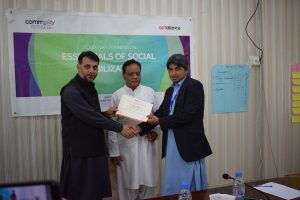
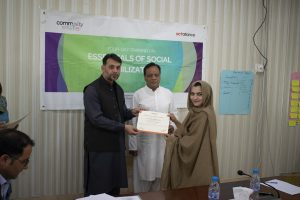
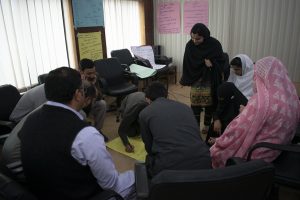
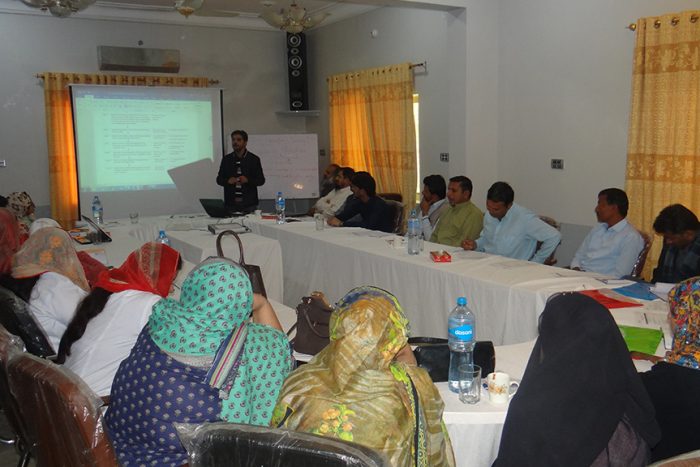
 “It is good that some responsibilities are shared among different departments for this new training evaluation methodology and we will definitely get support from MEAL Unit”. Shahab Anjum, Program Coordinator, exclaimed.
“It is good that some responsibilities are shared among different departments for this new training evaluation methodology and we will definitely get support from MEAL Unit”. Shahab Anjum, Program Coordinator, exclaimed. “Initially the complaint boxes were rarely used by project participants. As their learning grew, they started to share their hurdles with us. This has built trust in the communities we work in as we aim to address the issues timely,” shared Lata Kumari Khatri, Enterprise Development Officer.
“Initially the complaint boxes were rarely used by project participants. As their learning grew, they started to share their hurdles with us. This has built trust in the communities we work in as we aim to address the issues timely,” shared Lata Kumari Khatri, Enterprise Development Officer. “We learned a different perspective to view our project proceedings and outcomes. This tool will be very useful in guiding teams to maximize inputs in bringing greater change through the projects we work on,” expressed Sardar Shah, Project Officers.
“We learned a different perspective to view our project proceedings and outcomes. This tool will be very useful in guiding teams to maximize inputs in bringing greater change through the projects we work on,” expressed Sardar Shah, Project Officers.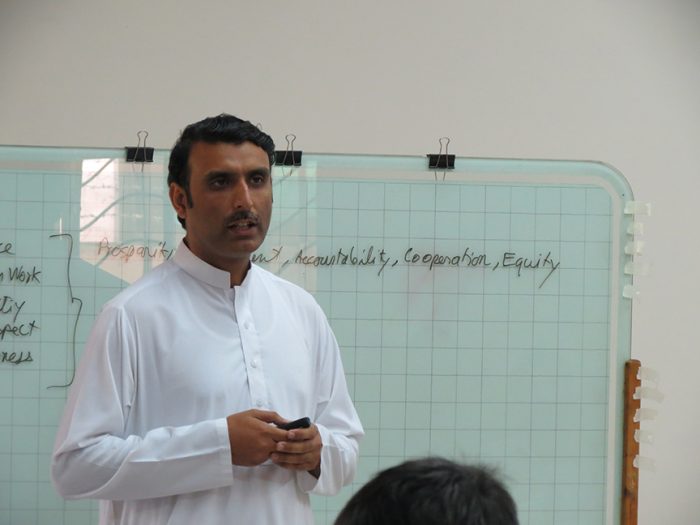
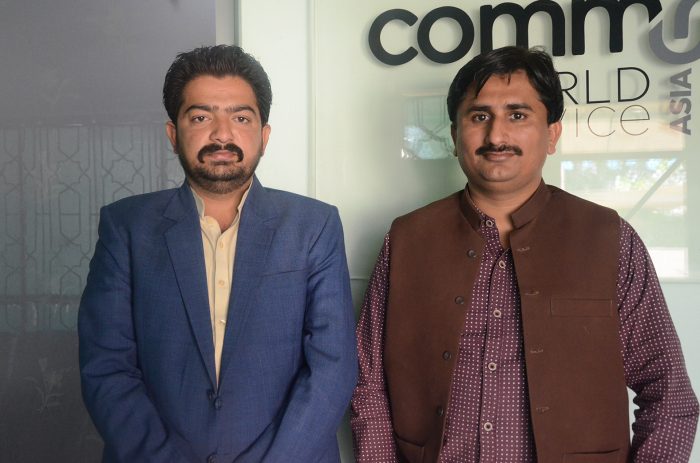
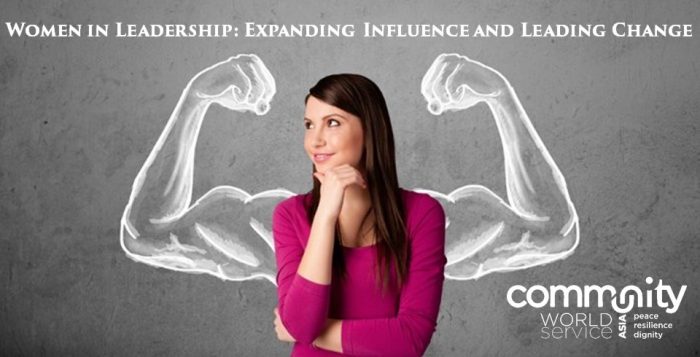







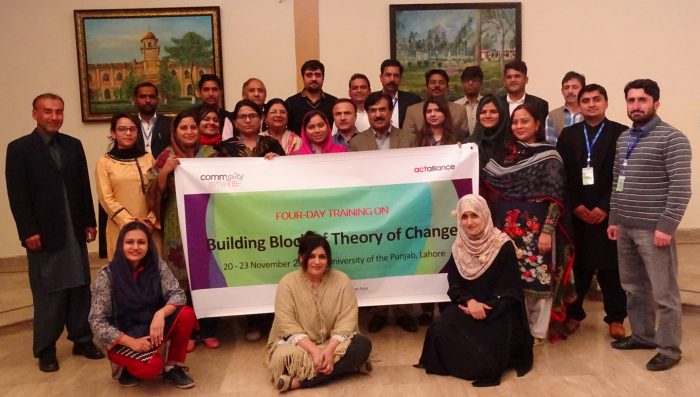
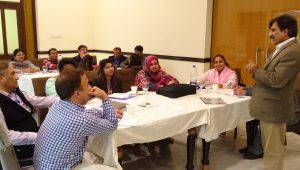
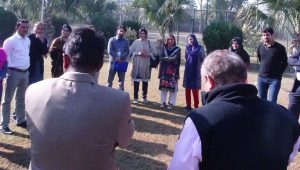
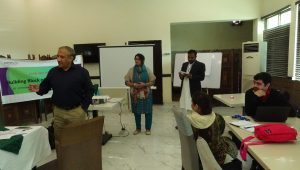
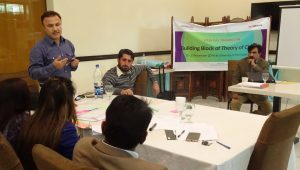
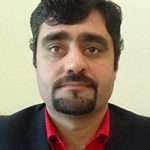 “Being a technical training, Zaigham made this training very rewarding and enjoyable. I learned a lot from this training and will try my best to improve further and train other staff in my organization on this. I want to express my gratitude for our facilitator for his outstanding way of articulation, knowledge and providing such a friendly learning environment.”
“Being a technical training, Zaigham made this training very rewarding and enjoyable. I learned a lot from this training and will try my best to improve further and train other staff in my organization on this. I want to express my gratitude for our facilitator for his outstanding way of articulation, knowledge and providing such a friendly learning environment.” “We acquired the skills of integrating ToC into our organization’s planning, monitoring and evaluation processes. Zaigham has been an outstanding resource person throughout the workshop and will prove to be more useful in future because of his availability and willingness to provide technical assistance after the workshop.”
“We acquired the skills of integrating ToC into our organization’s planning, monitoring and evaluation processes. Zaigham has been an outstanding resource person throughout the workshop and will prove to be more useful in future because of his availability and willingness to provide technical assistance after the workshop.” “Interactive discussion and practical group activities made learning more interesting and productive. The difference between the ToC and Log Frame was made clear in this training. I am grateful to Community World Service Asia to provide such an opportunity which will be beneficial for our organization in the long-run.”
“Interactive discussion and practical group activities made learning more interesting and productive. The difference between the ToC and Log Frame was made clear in this training. I am grateful to Community World Service Asia to provide such an opportunity which will be beneficial for our organization in the long-run.”  “I am grateful to be given this opportunity to learn Theory of Change. I learned the current practices of ToC and how to design community development projects. I am now able to connect ToC to the log frame for Monitoring & Evaluation. This training has enabled me to see the project activities from a different and broader level.”
“I am grateful to be given this opportunity to learn Theory of Change. I learned the current practices of ToC and how to design community development projects. I am now able to connect ToC to the log frame for Monitoring & Evaluation. This training has enabled me to see the project activities from a different and broader level.”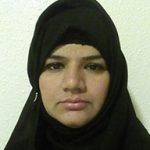 “This 4-day training was very interesting and beneficial for my organization as a whole. The training was conducted with a participatory approach including practice, sharing, discussions and group work. Our facilitator was well-versed and attended all our queries effectively. I hope to implement the learning in my work to bring positive results for community development.”
“This 4-day training was very interesting and beneficial for my organization as a whole. The training was conducted with a participatory approach including practice, sharing, discussions and group work. Our facilitator was well-versed and attended all our queries effectively. I hope to implement the learning in my work to bring positive results for community development.”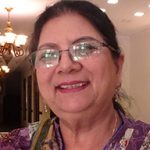 “I am working in the NGO sector for the past twenty years. This workshop has proved to be very useful in my field of work. The knowledge of ToC tools has enabled me to develop effective projects. Zaigham Khan has been very patient and helpful throughout the training.”
“I am working in the NGO sector for the past twenty years. This workshop has proved to be very useful in my field of work. The knowledge of ToC tools has enabled me to develop effective projects. Zaigham Khan has been very patient and helpful throughout the training.”